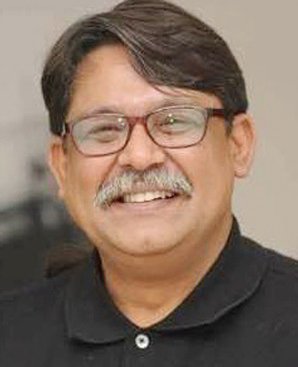Bangladesh in UN peace operations: A national pride


Nadeem Qadir
It might seem that because I am a Bangladeshi, I am saying that those men and women who work risking their lives to restore peace in distant lands is a national pride. It is not so as the following paragraphs will back what I write.
As of April, 2020, official UN statistics show that Bangladesh is the second largest troop contributing country with 6,434 including 256 women. It is way ahead of South Asian countries while Ethiopia is listed as the top contributor country.
First, I had the first hand experience in travelling to several countries where our blue berets are deployed and found their popularity with the host country’s people so huge, that it would be a matter of great pride for any Bangladeshi.
Towns have been named after Bangladesh or roads after our peacekeepers, while some countries adopted Bangla as one of their main languages.
At least 128 Bangladeshi Peacekeepers were posthumously awarded Dag Hammarskjöld Medals, while the performance of Bangladesh's contingents has been described as being of the “highest order.”
Bangladeshi senior officers have been holding top places in UN Peace Keeping offices and missions, which has been credited as a huge contribution to improving the peace keeping operations.
In 2008, the BBC described the Bangladeshi UN Force as "the cream of UN peacekeepers."
From 1988 to 2020, Bangladesh has earned many laurels in peace keeping operations not without loss of lives and sacrifice of our men and women in uniform.
As of April, 2020, official UN statistics, Bangladesh is the second largest troop contributing country with 6,434 including 256 women. It is way ahead of South Asian countries while Ethiopia is listed as the top contributing of troops.
Thus it is pride, pride and pride which was not so initially due to international politics where some UN member states tried to malign our forces, but they were defeated as our men and women proved them wrong and became the best.
Bangladesh first mission was in 1988 under the initiative of late President Hussain Muhammad Ershad.
The first UNIIMOG had 15 military observers.
Since then, the Bangladesh Army has been involved in at least 30 different missions.
Prime Minister Sheikh Hasina opened the doors for women in the armed forces and in other security organisations in her first term of office between 1996 and 2000. In 2015, Bangladesh proudly deployed its first even all women team – 160 – in Haiti. The unit was the subject of a documentary named, “Journey of a Thousand Miles: Peacekeepers.”
The premier also ensured proper weapons to for the country’s peacekeepers to face any situation while fighting anti-peace elements in foreign lands.
My experiences in both Liberia and in South Sudan, is unforgettable.
In Liberia, our men and women lived with constant death – the Lhasa Fever. This is fatal in nearly all those who fall prey to this disease and is spread by a red-eyed rat. We lost some of our men to this disease which suffocates a person before killing.
Lhasa Fever is also invisible like COVID-19 and if a person comes in contact with the saliva of the red-eyed rat leaves behind as it walks about and thus the tiny rats are not always found, causing fatality of humans.
In South Sudan’s Juba, fighting opponents were always trying to gain and thus it was a constant fear of outbreak of gunfights. During my stay, there was one such incident and myself as well as few other journalists we were given full-proof security. We , however worried about troopers facing off the incident and trying to restore peace. They succeeded in calming the situation without any losses.
In the evenings, in both Liberia and South Sudan, there were entertainments for both the officers and troops who never showed a sign of fear or worry. They were always working to keep the red and green national flag fluttering in foreign lands high and proud.
Bangladesh also boasts of training peacekeepers at its purpose-built Bangladesh Institute of Peace Support Operation Training (BIPSOT) in Gazipur, just outside capital Dhaka.
Salute to our blue berets.




